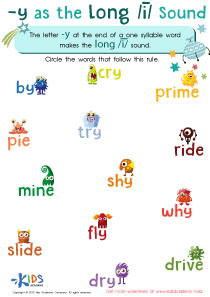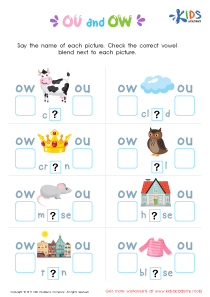Phonics Skills Normal Long Vowels Worksheets for Ages 3-4
4 filtered results
-
From - To
Introduce your little ones to the world of phonics with our engaging Normal Long Vowels Worksheets designed specifically for ages 3-4. These worksheets help young learners recognize and master long vowel sounds through exciting activities tailored to ignite their interest in reading. Each worksheet features vibrant illustrations and fun exercises, making phonics practice enjoyable while reinforcing essential skills. Whether your child is already familiar with letters or just starting to explore, our phonics resources provide the perfect foundation for early literacy. Encourage a love for reading and boost confidence with our expertly crafted long vowel worksheets today! Perfect for preschool and kindergarten learners.
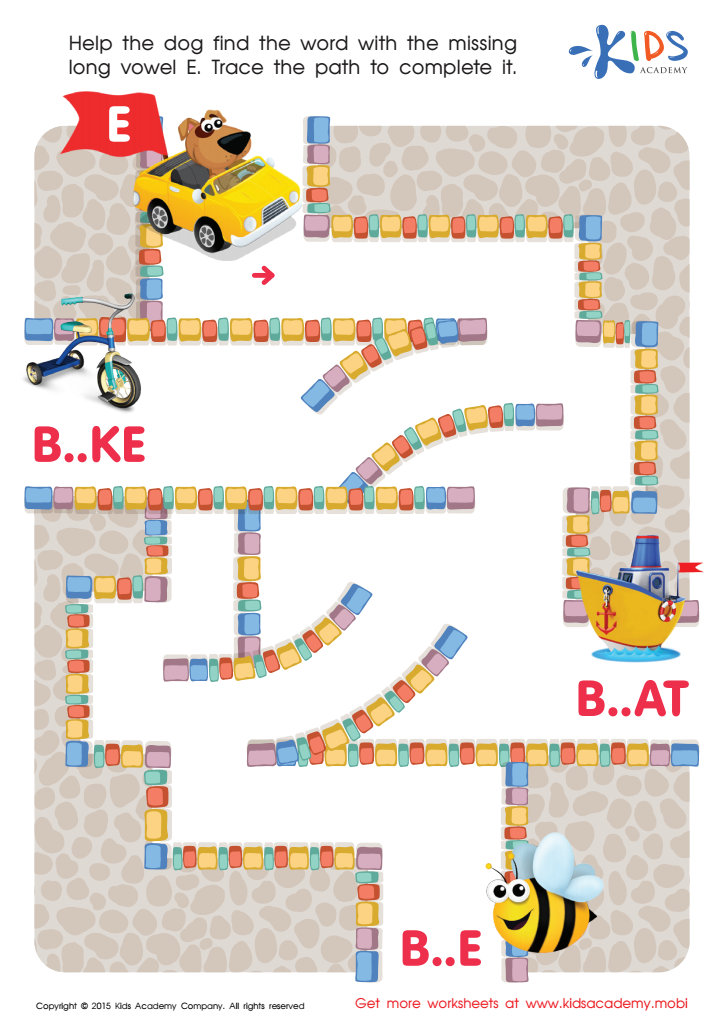

Long Vowel Sound E Worksheet
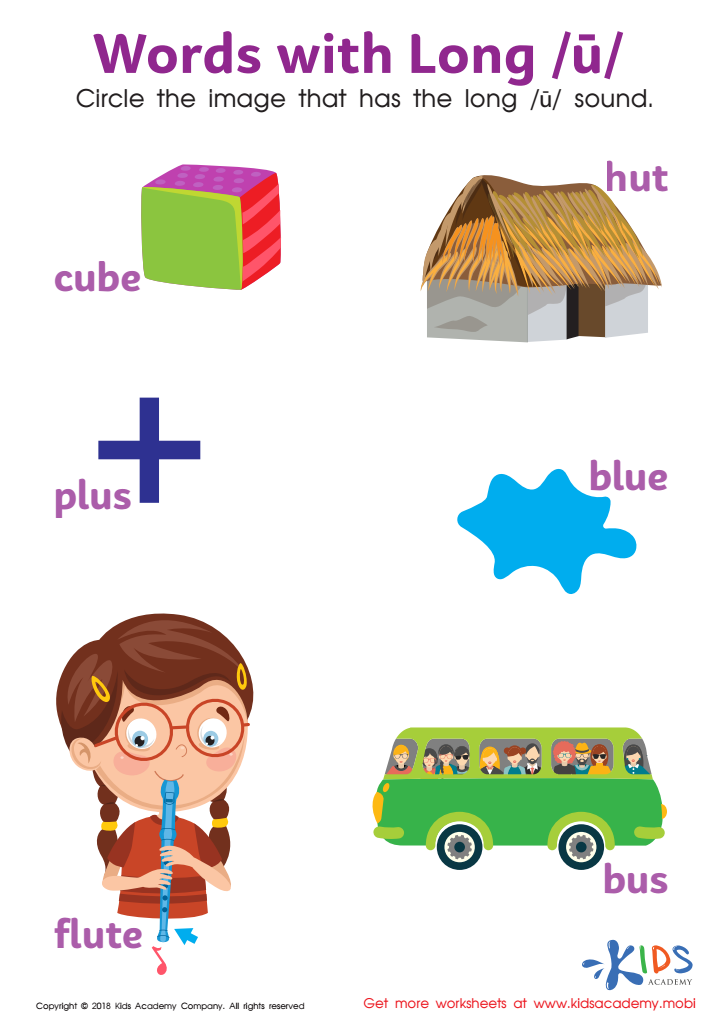

Words with Long U Reading Worksheet
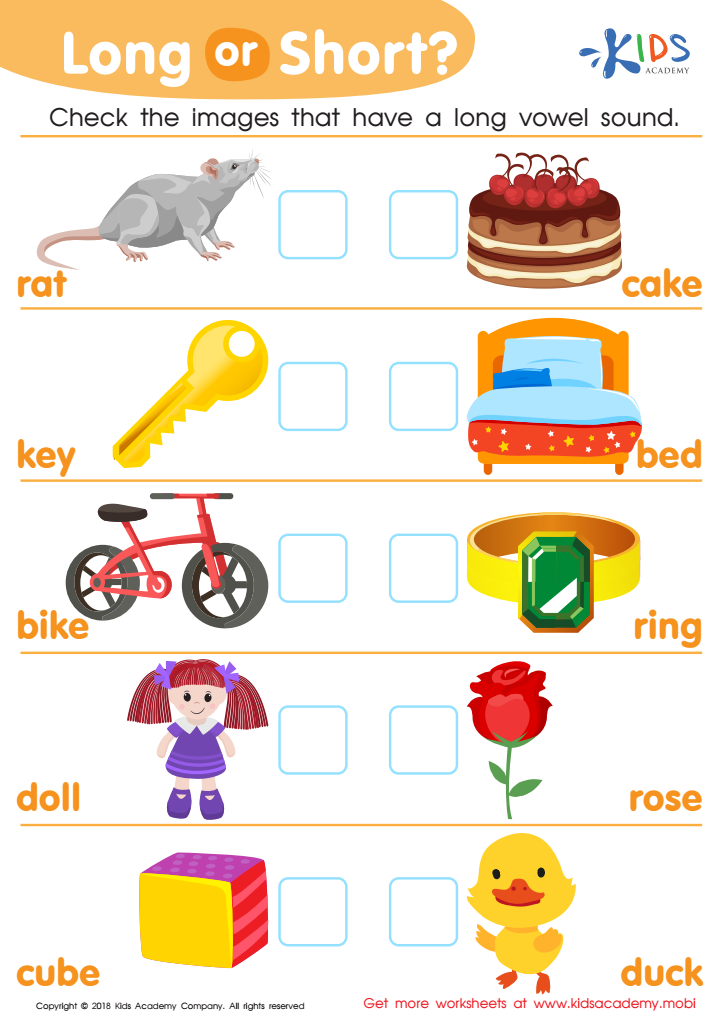

Long or Short Reading Worksheet


Long and Short E Worksheet
Phonics skills, especially when it comes to mastering long vowels, are critical for children aged 3-4 as they lay the foundation for reading success. During these early years, children's brains are highly receptive to language acquisition. Teaching them the sounds associated with long vowels helps them decode words, paving the way for effective reading and writing skills. These skills not only enhance literacy but also boost overall cognitive development.
When parents and teachers prioritize phonics education, they empower children to recognize patterns in language, improving their ability to communicate effectively. Long vowels—like the sounds in "cake," "bike," and "rose"—often lead to confusion if not taught properly.
Furthermore, developing phonics skills at this young age promotes confidence in children, enabling them to explore a wider range of reading materials. Strong phonics abilities correlate with long-term academic success and encourage a love for reading, which is essential for lifelong learning.
Additionally, understanding long vowels assists children in improving their spelling and phonetic awareness, fostering a strong foundation for later language skills. Hence, focusing on phonics during these formative years is crucial for a child’s literacy journey and overall educational development.
 Assign to My Students
Assign to My Students





